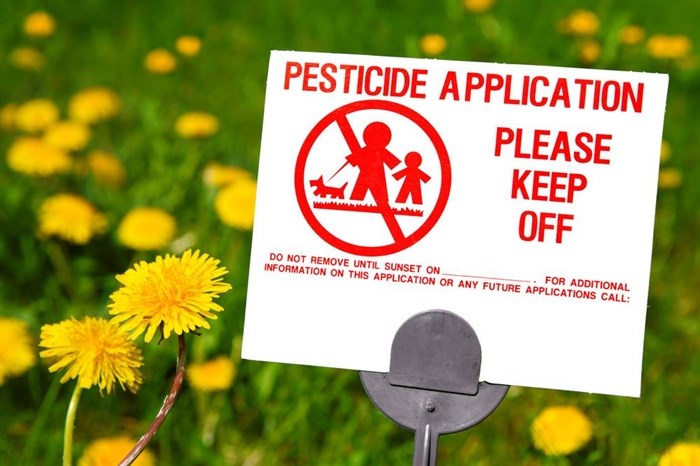
Image Credit: Shutterstock
June 20, 2015 - 11:30 AM
KAMLOOPS – Pesticides are not inherently dangerous. That and the many other misconceptions about pesticides stem from ignorance according to a local landscaper who deals with the chemicals regularly.
“A lot of people… aren’t educated enough, and they get scared. They think that applying all pesticides are bad because somebody told them,” Corey Munegatto says.
Munegatto is a project manager for Pronto Enterprises, a landscaping and maintenance company that also sprays and fertilizes lawns. He says Health Canada administers endless studies on the products used to ensure that they are safe. Pesticide formulations, for both plants and insects, are constantly upgraded to work more efficiently, and there is better understanding about what products can do every day.
“Everything we use has to be registered by Health Canada,” he says. “(Health Canada) has a team of scientists where that’s all they do."
He believes what is bad, even dangerous, is pesticides in the hands of the uneducated.
If approved Coun. Tina Lange’s motion could see the licensed applicator provision taken out of the current ban. Munegatto feels he and his colleagues should be trusted as qualified professionals, something the average homeowner is not.
“Not to say that nobody reads the labels, but there are homeowners that don’t,” he says, noting this is when pesticides become dangerous.
Munegatto says there is always a need to upgrade knowledge because of new advances in the field and he attends at least one trades conference a year to keep up with trends.
“We are a pretty educated group of professionals. We all have to be certified to do these things, we’ve gone through extensive training,” he says.
Homeowners don’t necessarily know how to spray, how much to spray and many don’t often wear protective clothing. Pronto employees wear full length pants, long sleeves, tall rubber boots and gloves and, depending on the chemical used, respirators.
“If you’re going out in your yard in sandals, you’re walking through it, you’re spraying your feet, you’re getting exposed,” Munegatto says.
As Pronto is a diverse company, a city-wide pesticide ban would not destroy their business but would most likely be the end of its lawn care division. Munegatto refutes any idea that a ban would help them grow services because he doesn't believe anyone will hire a company to pull weeds. He notes hand-pulling isn’t that simple as some weeds have complicated roots systems that only spot treating with pesticides can solve and the cost of hand-pulling could easily be more costly because of the extra time it would take as well.
Since the city can’t control the sale of product in stores, Munegatto believes homeowners will take weed care into their own hands. Because a city wide ban would not prevent businesses from selling it on their shelves Munegatto believes homeowners will just take a simpler route.
“They’ll probably go to Home Depot, buy their jug of Killex for $30 and have a full year of applications.”
To contact a reporter for this story, email Dana Reynolds at dreynolds@infonews.ca or call 250-819-6089. To contact an editor, email mjones@infonews.ca or call 250-718-2724.
News from © iNFOnews, 2015